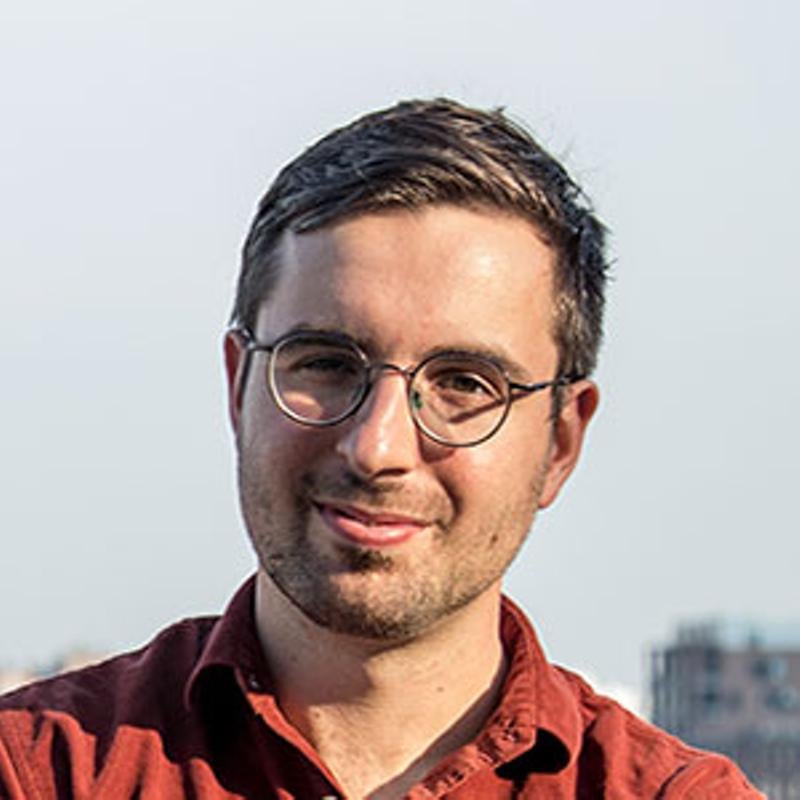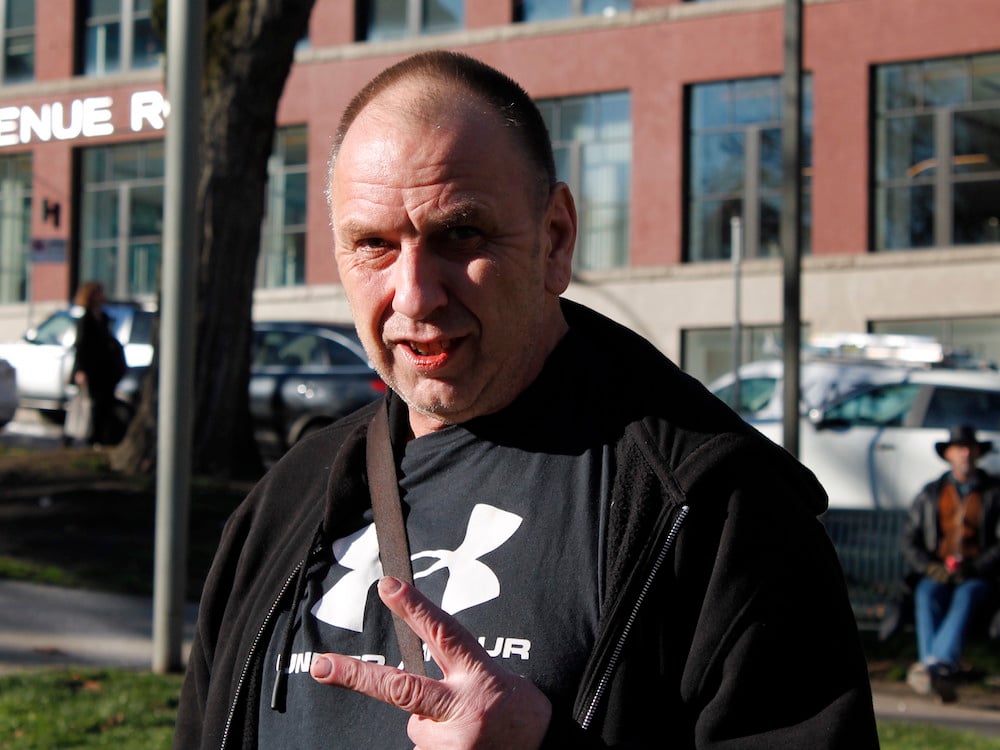Ian McLeod started his job saving lives for less than minimum wage.
For seven years, McLeod has worked picking up needles and responding to overdoses in Vancouver’s Downtown Eastside for the Portland Hotel Society, one of the neighbourhood’s biggest service providers.
For most of that time, McLeod wasn’t considered an employee. He and other peer workers — a term for workers with similar lived experiences to those of the clients they serve — were considered volunteers and paid a stipend. His starting rate was $7.80 an hour.
Two years ago, McLeod and about 35 other peers at PHS voted to join a union, something they saw as a path to job stability, fair compensation and respect.
For them, it’s worked. But for most other peer workers, it’s been a disaster.
The PHS successfully argued at the BC Labour Relations Board that the vast bulk of peer workers should be excluded from the collective agreement, arguing they were volunteers and not employees. PHS’s most recent estimates are that there are roughly 100 such volunteers who are not part of the union.
Many of the volunteers who were left out of the union bid have since seen their work opportunities dry up.
The Tyee has spoken to four current and former peer workers at the Portland Hotel Society who say some of their colleagues have lost their volunteer positions or had their stipends reduced or hours cut since peer workers voted to join the Canadian Union of Public Employees.
McLeod, who is a member of CUPE, says some of those volunteers had done those jobs for more than 20 years, sometimes literally working for meal vouchers.
Most peers asked not to be named in this article. The PHS media policy forbids staff from speaking with reporters, meaning staff like McLeod risk discipline or termination by speaking with The Tyee.
Micheal Vonn, the CEO of PHS, said in an interview that the non-profit had only so much money to divide among peer workers. She said the costs and constraints of the unionization bid meant most of the money now goes to those peers covered by the agreement, leaving far less for the greater group.
“Clearly, not everyone is going to enjoy the benefits of the certification,” Vonn said. “There’s nothing to say outside of that, except I know a number of people were very disappointed.”
CUPE Local 1004, the union McLeod and other peers originally voted to join, did not respond to requests for comment.
Those peers and other PHS staff are now represented by CUPE Local 5536, which split off from CUPE 1004 because of a change in how the province bargains with public sector employees.
That local’s president, Andy Healey, said he believed all peer workers should have been allowed to join the union.
He pointed out that people who use drugs, like peer workers, were the building blocks of many programs operated by PHS, including Insite, the country’s first supervised injection site.
“Insite wasn’t started by some bureaucrats at the health authority,” Healey said. “It was started by drug users on the ground who envisioned a better model and went ahead with it.”
McLeod said he now feels let down by both his union and his employer, who he believes jointly squandered a chance to set a new bar for how peer workers are treated.
“It’s wreaked havoc on everything,” McLeod said.
Saving lives for food stamps
The Portland Hotel Society is one of the largest non-profits operating in Vancouver’s Downtown Eastside.
It has a budget of more than $66 million, employs hundreds of staff and operates about 1,700 supportive-housing units and a range of health services. Those include multiple overdose prevention sites and harm reduction programs that are vital in a neighbourhood that has been called the epicentre of Canada’s toxic drug crisis.
For decades, PHS has recruited peer workers to help it deliver those services.
Before the union certification, PHS had two main jobs for peer workers. Some worked in a program called Spikes on Bikes, which dispatches peers on bicycles to collect discarded syringes and assist people who are overdosing. Others worked at the Molson Overdose Prevention Site, where peers and other PHS staff supervised and kept watch over people using drugs.
Over time, non-profits like PHS began to offer peer workers stipends.
Vonn said these were not intended to be jobs. The programs were loosely structured so that a peer could effectively stop in at any time and volunteer for a shift. They were then paid in cash, a setup designed to be easy and flexible.
McLeod said it was “the best job in the world.” Peers saw themselves, he said, as a family. And they were paid to help their friends and neighbours.
But they were also frustrated by parts of the program. Their cash stipends had been well below the minimum wage for years. McLeod and other peers said they increased in the lead-up to the union bid and eventually reached between $15 and $20 an hour for most staff and supervisors.
One peer said they felt unequal to other PHS staff, who made much more money even when they had less experience. And since PHS didn’t consider peers to be employees, they had no job security.
“I knew that Portland, at any given time, could close that window and they would not even give us a handshake,” McLeod said.
On top of all that, peers were both living and working through an unprecedented surge in overdose deaths. They and their neighbours were dying at horrific rates.
One of the campaign’s biggest champions, Dave Apsey, told the Canadian Press in March 2020 that he felt peer workers deserved more compensation for the life-saving work they did. Apsey died of an overdose that same year.
“This has been a long time coming. We pay our own medical, buy our own prescriptions, things aren't cheap,” Apsey said.
The aftermath
In January 2021, peer workers voted unanimously to join CUPE 1004, the same union that represented other PHS employees at the time.
But only peer workers who had reached the “supervisor” role were considered voting members of the union.
That’s because the BC Labour Relations Board accepted PHS’s argument that most peer workers did not meet the definition of an employee and were instead “recipients of therapeutic programs.”
Healey, the union leader, said he was disappointed with that outcome. “These are people who have worked for a long time, and they work right alongside the folks who are getting the T4 [tax slip],” Healey said. “Everyone considered each other co-workers and peers and equals.”
After the certification, McLeod and other peers interviewed for this story said things began to change.
Peer workers who had been excluded from the certification had far fewer opportunities to pick up shifts. When they did, their duties were far narrower.
Workers at the Molson Overdose Prevention Site, for example, were no longer supervising people using drugs so they could intervene in the event of an overdose. Instead, they were typically only allowed to work at a window distributing harm reduction supplies.
And Spikes on Bikes — the other main source of work for peers — was reserved entirely for unionized workers.
“As much as I know, the employer is getting away from the volunteer program,” Healey said.
In an interview, Vonn said the non-profit no longer had enough money to provide the same work opportunities it once did, owing in large part to the unionization drive. She also said volunteer workers are not allowed to do a number of tasks that are done by the 23 unionized peer staff.
In an emailed statement, Vonn said PHS opposed the bid to unionize peer workers because they believed most workers “would not successfully transition given the comparatively high barriers of the responsibilities and expectations of an employment relationship.”
“We were very alive to the fact this was going to make changes that were perhaps not perfectly considered by the body that was looking to advance their interests,” Vonn said.
Vonn said PHS’s peer programs are funded via grants from health authorities. That means there’s a set — and limited — pool of cash.
When workers unionized, most saw their hourly compensation jump from a $15-an-hour stipend to a base hourly salary of about $28. They also became entitled to sick pay and other benefits.
The result, Vonn said, is they had to rein in spending on the volunteer side of the program.
The results for some workers have been devastating. Some lost their positions entirely. McLeod said one of his colleagues took a pay cut to $10 from $15.
One worker who supported the union drive said they felt like the outcome was a “kick in the teeth.” Some peers added that they felt they no longer had any opportunity to advance to a better position.
Vonn said the non-profit has tried to respond by finding jobs and other work opportunities for peers who were left out of the certification.
“We have worked very, very hard to try and make this situation beneficial, because obviously the certification was an attempt to create opportunities for people,” Vonn said.
Vonn would not say if she had asked her funders to increase that funding but said, “We are always going to the funder in relation to our needs.”
The Tyee reached out to CUPE 1004 and CUPE 5536, asking them to respond to Vonn’s comments. They did not reply before publication time.
In an earlier interview, Healey said the non-profit had not done enough to help peer workers. “Layers of bureaucracy don’t necessarily do what’s right for people,” Healey said.
McLeod, for his part, is upset with the union and his employer.
He feels outrage, he said, for longtime colleagues who were excluded from the certification. But he also says CUPE hasn’t done enough for him and his peers, and that he wishes they had voted for a different union.
“If I was king of the world, I would go back to the same system. They had an opportunity when they were negotiating to be world leaders in employing people with addiction,” McLeod said.
“There will be nothing that changes unless society sees us and values us in a different light.” ![]()
Read more: Rights + Justice, Labour + Industry

















Tyee Commenting Guidelines
Comments that violate guidelines risk being deleted, and violations may result in a temporary or permanent user ban. Maintain the spirit of good conversation to stay in the discussion and be patient with moderators. Comments are reviewed regularly but not in real time.
Do:
Do not: